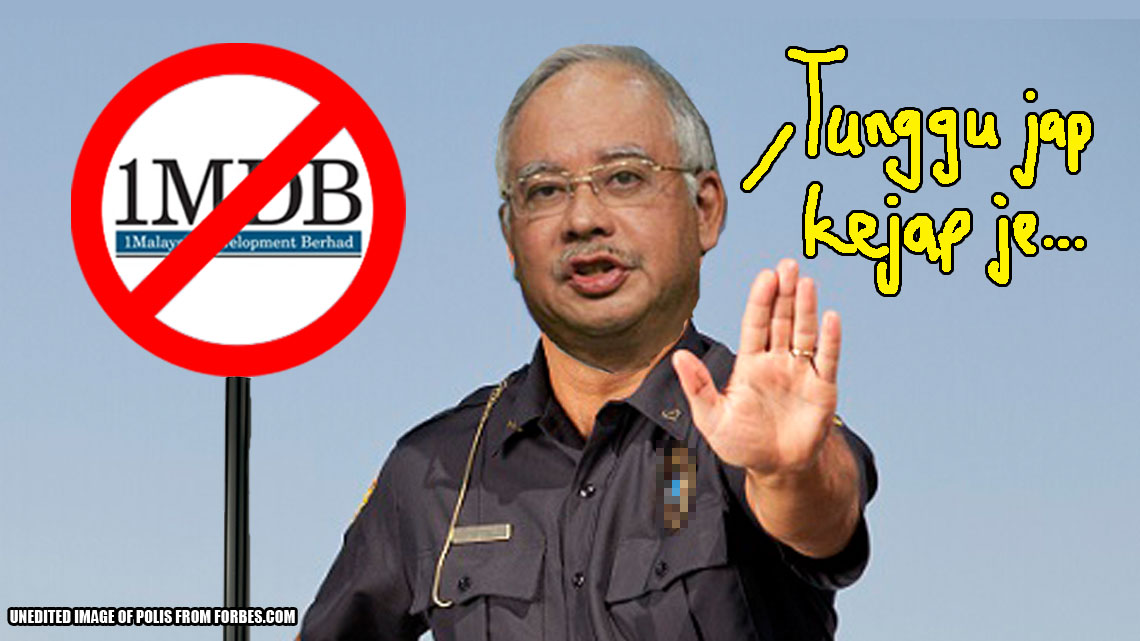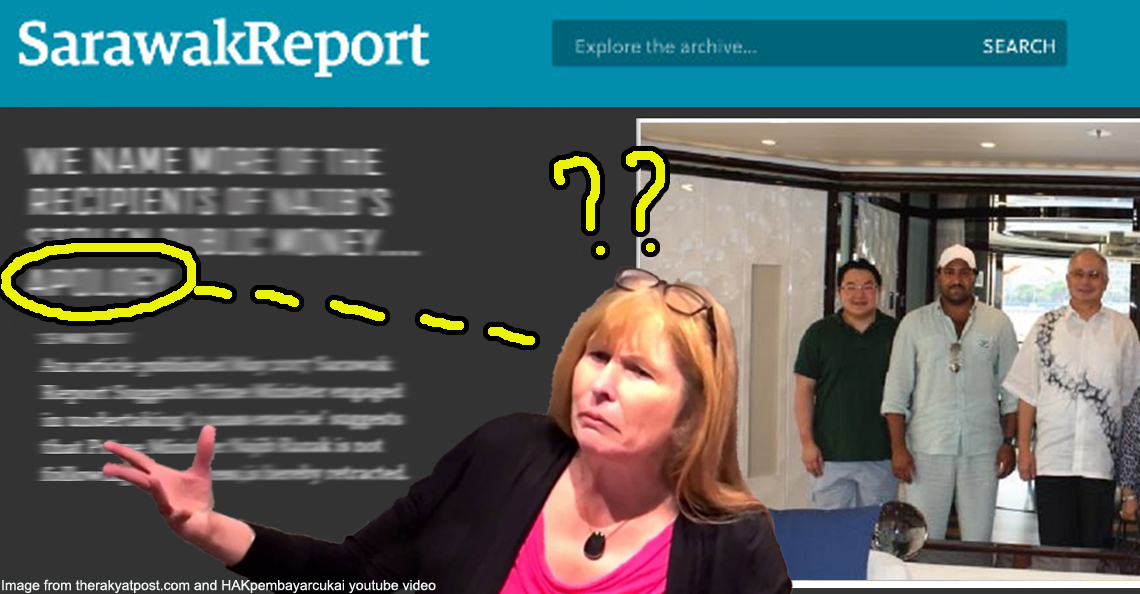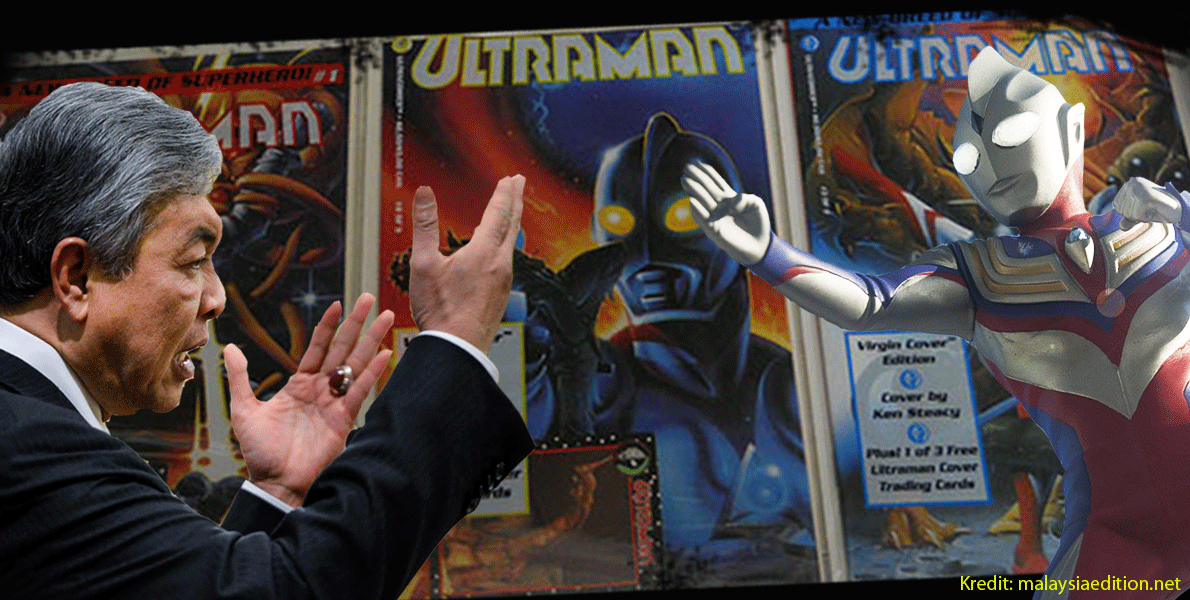The Edge won a lawsuit against the Gomen?! Does this mean their 1MDB exposé was true?
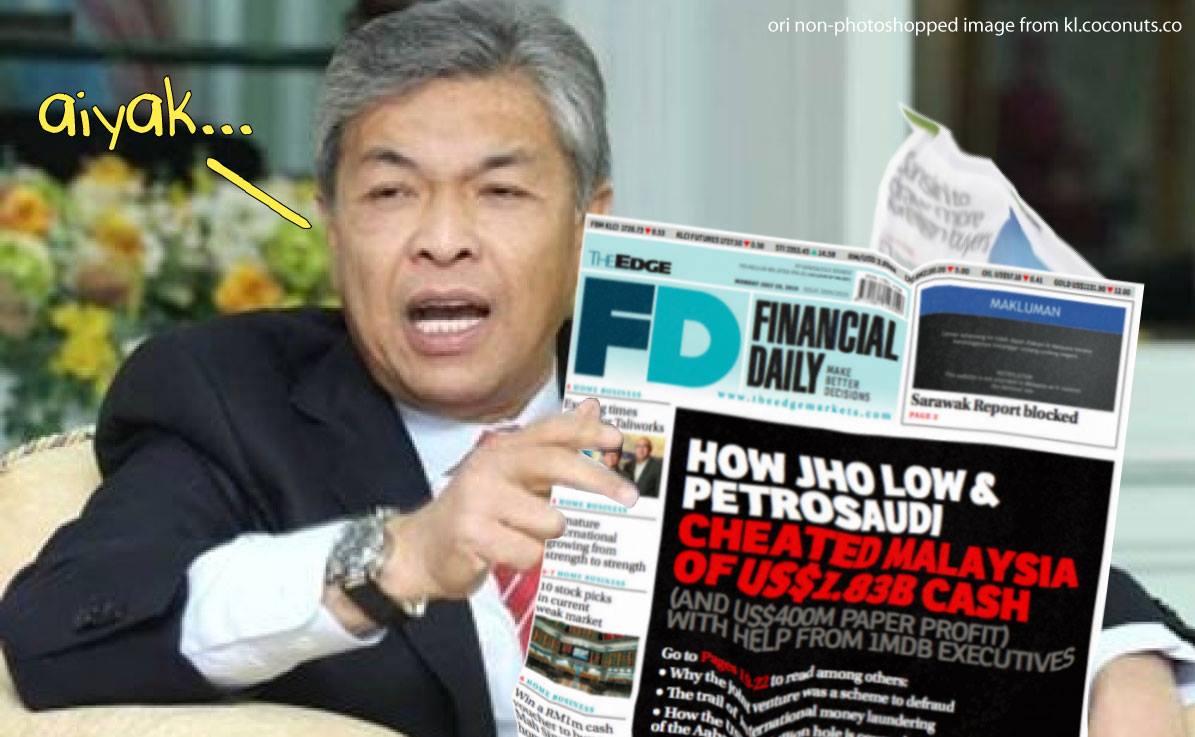
- 2.1KShares
- Facebook2.0K
- Twitter14
- Email22
- WhatsApp75
Some of you may remember a period last year when portals and publications such as Sarawak Report and Wall Street Journal were having a field day with exposés linking the 1MDB debacle to a certain politician and kroni-kroni yang sewaktu dengannya. The local authorities didn’t find these reports particularly amusing so the Sarawak Report got blocked, and the Wall Street Journal was sued by PM Najib threatened with suing given the waggy finger of disapproval.

However, none got it worse than local newspaper The Edge, who were slapped with 3-month publishing ban in July 2015 after the publication’s own investigative pieces on 1MDB finally pushed the Home Ministry’s patience over…. the edge.
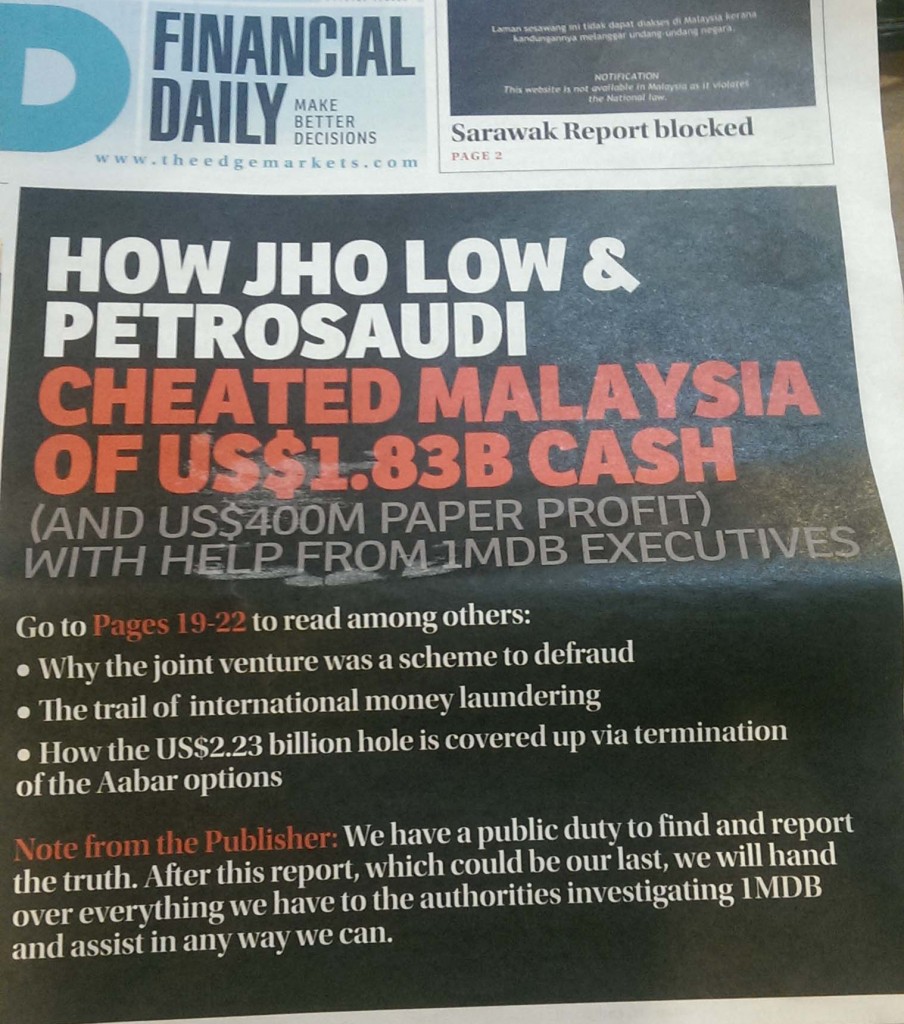
The Home Ministry gave three reasons for the ban which you can read here, but the short version is that they violated Section 7(1) of the Printing Presses and Publications Act (PPPA) by publishing unverified news that created a negative perception of 1MDB and the government. One thing to note is that the PPPA only applies to physically printed stuff like newspapers and magazines, which is why The Edge can be stopped from publishing while Sarawak Report cannot. And while three months doesn’t sound very bad, it’s actually pretty devastating when you realize that it…
- Gives The Edge little to no income, which is bad for a company with 350 mouths to feed
- Makes local newspapers even more scared to publish anything that might offend the people in power
Of course The Edge didn’t take this ban lying down, so they challenged the Home Ministry’s ban in court…. and won! Twice! We’ll go into the details in the next point, but here’s a comment that we’ve been seeing a lot:

Some people read between the lines and took this to mean that what The Edge was reporting was true, but that’s not actually the case. Here’s why…
It doesn’t mean The Edge was correct, but that the Home Ministry messed up

This is an example of correlation not implying causation, a smart-alecky way of describing someone who made the wrong conclusion based on the correct facts.
In regards to the first (High Court) case, the judge made her decision based on whether or not the Home Ministry followed proper procedures when they banned The Edge. The accuracy of the 1MDB reports were never part of the case:
“The decision is also made solely based on facts presented before me unaffected by any surrounding circumstances around 1MDB.” – Datuk Asmabi Mohamad, High Court Judge, quoted by The Malay Mail Online.
Very quickly, the judge found that the ban on The Edge was illegal because:
- The Home Ministry didn’t specify how The Edge broke the PPPA law
- They didn’t tell The Edge which specific article(s) had violated the law (The Edge has over 300 1MDB-related articles)
- They didn’t give The Edge enough time to respond before dropping the banhammer
- Home Minister Zahid Hamidi was not sure if The Edge’s sources were actually unverified or not.
In other words, this is like your mother caning you because she heard you did something bad, but won’t tell you what what it is. You can’t even defend yourself because you don’t know what you did wrong! Not fair right? Yep. The judge thought so too and not only un-banned them, but also ordered the Home Ministry to pay compensation to The Edge.

The Home Ministry wasn’t happy with this, so they challenged that decision in the Court of Appeal, who basically said “Sorry bro, but we’re siding with The Edge on this. Go pay compensation.”
But they’re not done yet! The Home Ministry is seriously considering making one final appeal to the Federal Court. And we say FINAL appeal because the Federal Court is the highest court in our legal system – any decisions they make are, well, final.
But considering they’ve been trying so hard to wriggle out of it, we can’t help but ask…
Why is the Home Ministry so kedekut in paying the Edge?

No, it’s not because the gomen has no money. In fact, no one even knows how much the Home Ministry has to pay yet, because they now have to bring the case back to the High Court to determine the amount.
But the issue here really isn’t the money – it’s about control. Y’see, if the Home Ministry pays compensation to The Edge for banning them, it opens up the legal floodgates for everyone else who kena ban in the future to do the same thing because the outcome of this case would set a precedence (stare decisis) – meaning the courts will use the outcome of a previous case as a reference for similar cases in the future. Here’s the argument made by the lawyer representing the Home Ministry:
“The minister has the discretion under the Publication and Printing Presses Act 1984 to make the suspension order. … How is a minister going to make decisions if they are subjected to private law actions? This will open the floodgates.” – Alice Loke, Home Ministry’s lawyer, as quoted by Malaysiakini.
You may have heard that our local newspapers are “controlled” in the news they publish, especially after three newspapers (including The Star) were shut down in 1987 using this same PPPA law. For a more recent example, New Straits Times editor Mustapha Kamil recently resigned over government directives to local newspapers asking them not only to NOT report news on 1MDB, but also gave them specific stories that questioned the Wall Street Journal’s reports to publish:
“There are specific instructions to use this or that story, and we’re not allowed to question … Before 1MDB, there was more freedom for us to do our job.” – Mustapha Kamil, as quoted by the Wall Street Journal.
So in a sense, The Edge had directly challenged the government knowing fully well that there was an almost-absolute chance they’d get shut down. In fact, they even said it themselves:

So in a way, The Edge took the bullet for Malaysian journalism
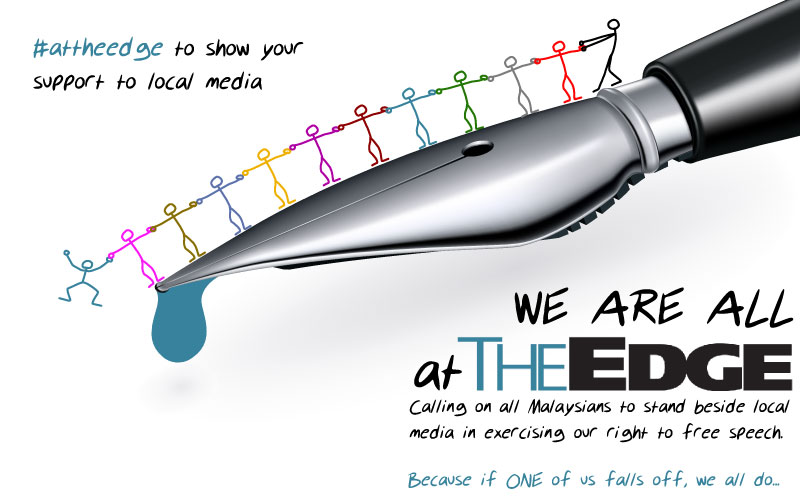
CILISOS rarely ever writes opinion pieces, but back when banhammer first dropped our editor wrote an opinion piece about why people should care about The Edge shutting down. And within that article, we made the following statement:
“The Edge has pushed those boundaries further than no other publication has dared to so far. Especially for newspapers, which are much more heavily regulated than online publications such as ours, they really put everything on the line, and for that alone, regardless of disagreements, they deserve the respect and gratitude of ALL Malaysians.”
And today, that statement still holds true because – if The Edge wins the court case(s) – the authorities would have to make sure all the legal procedures have been followed before taking action on a publisher, thus giving greater freedom for the media to do their job – which is to keep you informed of what’s actually happening in the country rather than what certain people want you to know.
And because we know there’ll be comments asking if what The Edge (or Sarawak Report) were reporting about 1MDB is true, well… let’s just say that they seem to match up to what the US Department of Justice found in their own investigation. We did a comparison for Sarawak Report (they seem to match) but as for The Edge, CIMB Chairman and PM Najib’s brother Nazir Razak has this to say:
“Exactly 12 months ago, [The Edge’s headline] got them suspended. Today, the US attorney-general is saying pretty much the same thing,” – Nazir Razak, in an Instagram posting quoted by Malaysiakini.
Again, the battle’s not over yet… There’ll most probably be a final fight at the Federal Court. But it’s a good time to remind everyone that The Edge isn’t fighting for themselves; they’re fighting for all of us – journalists AND readers. And though no one has used this hashtag for awhile, it’s a good time to say that we’re all #attheedge

- 5 SCARY WAYS MALAYSIA’S INTERNET MIGHT CHANGE AFTER JULY 2016
- IS SARAWAK REPORT ACTUALLY EVEN ACCURATE? WE CHECK WITH DOJ REPORT
- WHAT HAPPENED TODAY IN 1987 THAT SCARRED THE MALAYSIAN MEDIA
- 2.1KShares
- Facebook2.0K
- Twitter14
- Email22
- WhatsApp75

